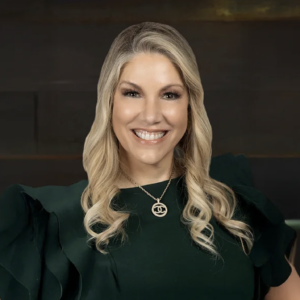Financial advisor, certified financial planner (CFP) and author of “Women and Wealth,” Cary Carbonaro is passionate about educating and empowering women to achieve financial freedom. While the male-dominated financial services industry has been slow to align with female clients, Carbonaro seeks to fill the void, helping women grow their wealth through proper guidance and literacy.
So what specifically does she advise to help women grow their wealth? And, better yet, which parts can women implement on their own?
“When you’re losing sleep over money or don’t know where things are, when you have more questions than answers — you need a CFP. But the basics everyone can do,” Carbonaro said.
Here are five wealth-building basics that women can put into practice today.
Aim for Budget Surplus
When it comes to budgeting, women should know exactly what amount of money is coming in and exactly what amount of money is going out.
“Know your numbers and manage your numbers,” said Carbonaro. “If you don’t know what they are, they are probably in the red. You need extra money left over every month. That’s how you create financial freedom.”
Wealth building, she explained, is created from the excess in that budget.
While budgeting is crucial for both genders, it’s unfortunately not something she sees women do regularly. But, as Carbonaro likes to say, “Money equals power, and women need more of both.”
Avoid Carrying Credit Card Balances Past 30 Days
“Credit cards are not free money,” Carbonaro said. “Do not carry balances, because then you’re overspending, paying high interest rates and not adhering to your budget.”
She acknowledged credit cards can be a good way to build credit, get points or float for 30 days — but that’s if and only if the balances are paid off in full at the end of the month.
Carbonaro explained there’s a myth that not paying off one’s full balance and, instead, only paying off portions each month can help build credit.
“That’s not the case,” she said. “Pay it off in full.”
Manage Your Credit Score
Carbonaro explained that credit scores stay with you for the rest of your life — and individuals can save hundreds of thousands of dollars in a lifetime on fees, mortgages, car loans, etc. simply by having a good credit score.
“This is important for both men and women,” Carbonaro added. “But if [married] women want to be financially independent, they need their own credit score and not a spousal credit score. They need their own financial identity.”
And, while credit reports don’t technically merge with a spouse’s — though joint accounts can influence them — building credit prior to nuptials is essential. So plan ahead. That way, if the marriage later dissolves, a woman is well positioned to save money over her lifetime.
Carbonaro suggested online tools like Credit Karma or Experian to model ways to achieve good credit. And she added that she’s not a fan of opening store credit cards, since each store runs one’s credit prior to approval — which drops your credit score.
Know Your Net Worth — And Ensure It’s Increasing
“What you own minus what you owe equals your net worth,” Carbonaro explained. “At least once a year, run that number. The number should be increasing over time. If not, something is wrong.”
One needs to know how much money they have if they want it to grow over time. Arming women with this knowledge helps put them in the driver’s seat and promotes course correction should the numbers not trend in their favor.
If a woman is partnered, Carbonaro said she should be tabulating a joint net worth with her spouse. “It’s too easy to hide things when finances are separate. Money is the second biggest reason people get divorced; the first being actual infidelity. So be transparent.”
Save for Retirement
Carbonaro is an advocate for maxing out retirement accounts — and, therefore, allowing that money to compound over time and increase net worth.
“Put as much money into your 401(k) as you can,” she said. “Whatever the company match is, put in what they put in. If the company puts in 6%, you also put in 6%, so you get 12%. And if you don’t have a plan via work, put money in an IRA.”
In 2025, the maximum IRA contribution is $7,000, with an additional $1,000 contribution allowed for those over age 50, for a total of $8,000.
Carbonaro also pointed out that those who are self-employed have even more options, such as a solo 401(k), SEP IRA or defined benefit plan.
Retirement Savings for Married Women
Carbonaro advised married women out of the workforce to look into a spousal IRA — if the partners get divorced, the money is still hers. Though she cautioned against stay-at-home mothers completely giving up their careers.
“Stay-at-home moms are at risk,” she explained. “She’s given up her career and her economic contribution to the house. If a man walks away, stay-at-home moms are vulnerable.”
Why Women Need To Save More for Retirement
Finally, Carbonaro explained that saving for retirement is particularly important for women because, on average, women live five to seven years longer than men, make less money because of the wage gap and also have the gender wealth gap to contend with.
“Women are out of the workforce taking care of kids or parents, which costs over $1 million in a lifetime. Also, women are more conservative with investments,” she said. “And they spend $250,000 more in retirement than men because of menopause and all other reasons related to women’s health. Women retire with 2/3 less than men.”




